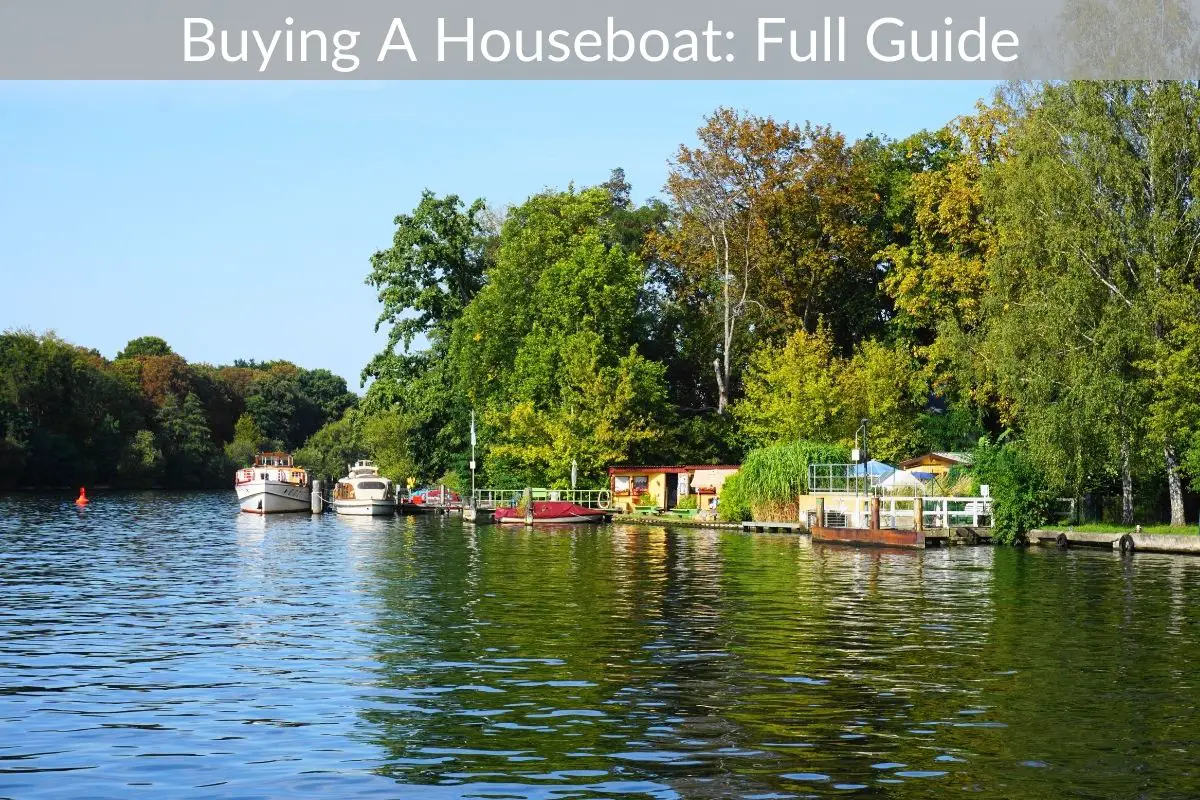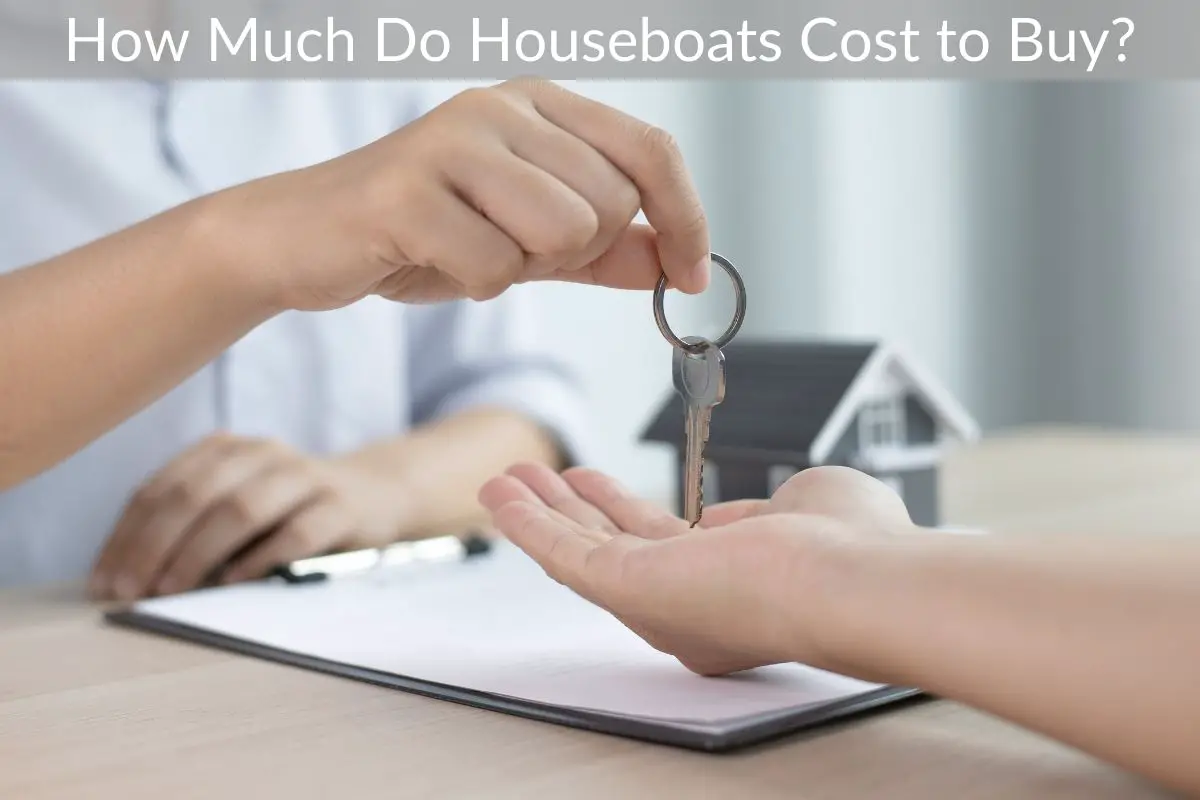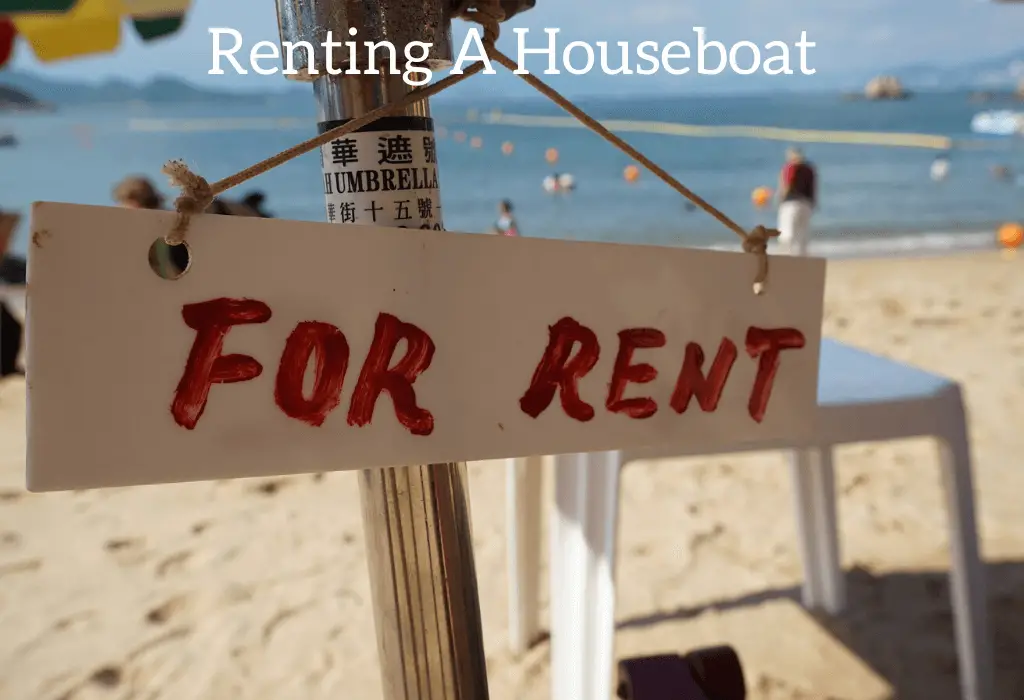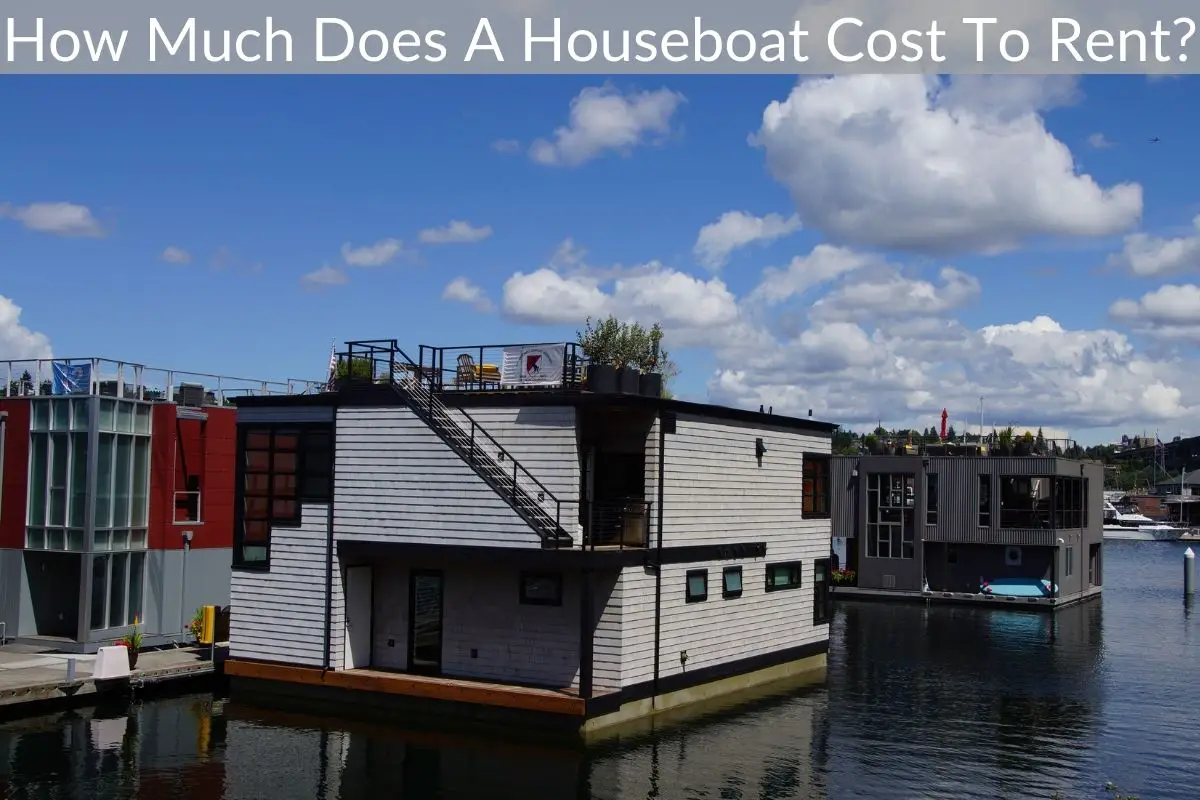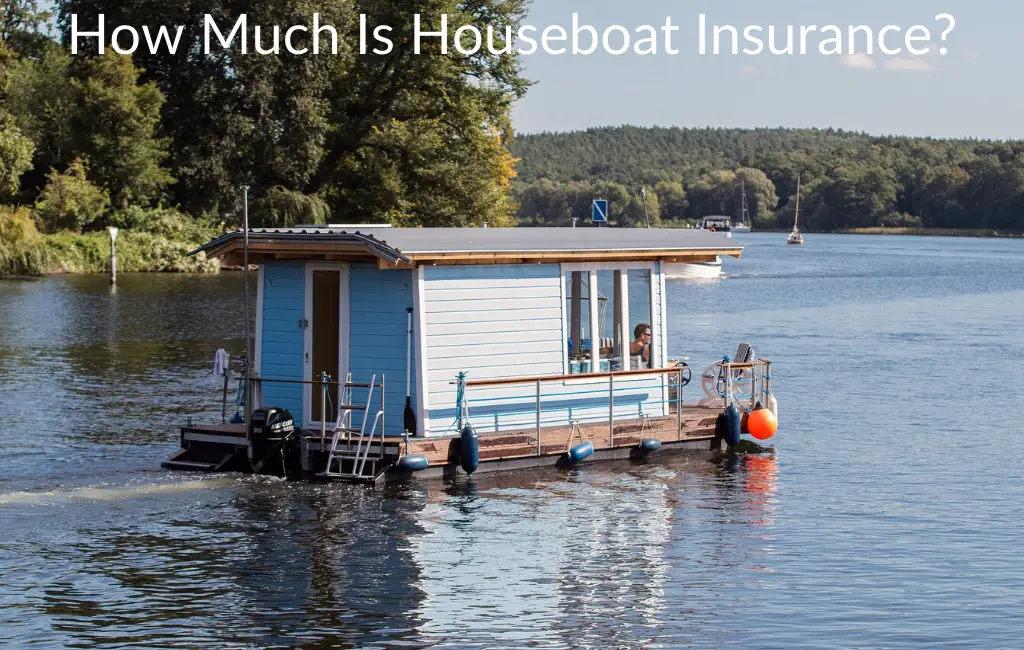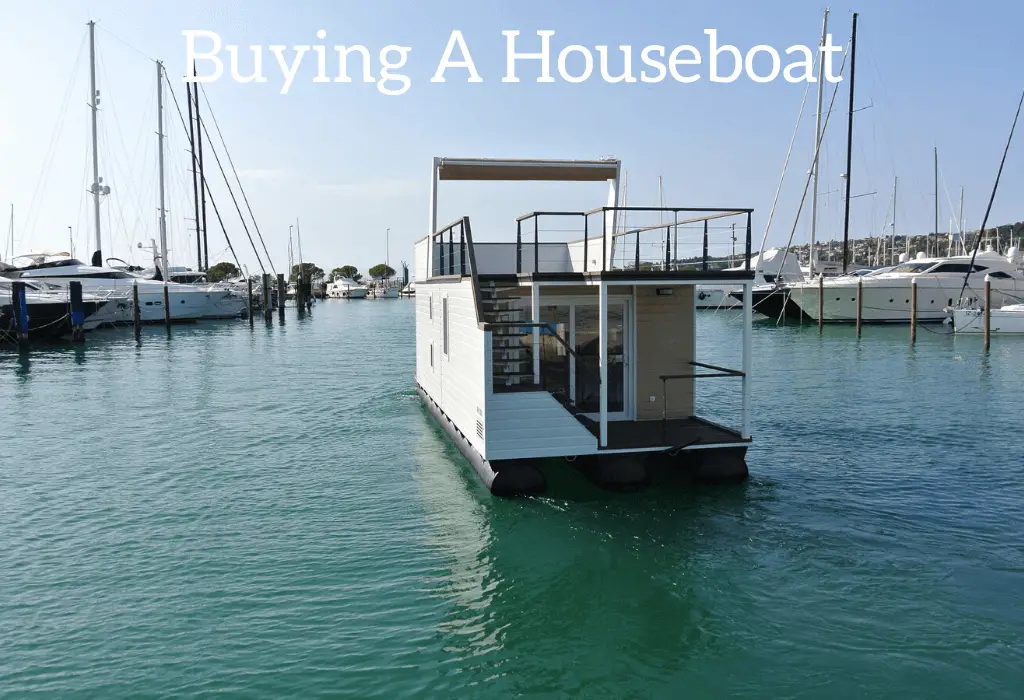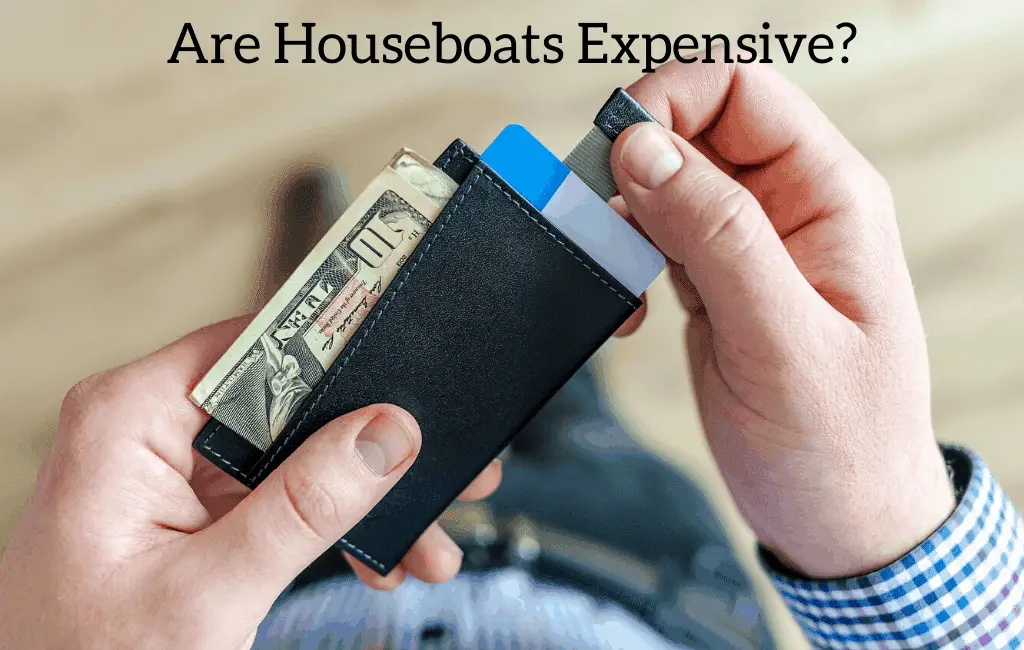Are you wondering if you can anchor a houseboat anywhere? If so, then you’ve come to the right place.
*This post may contain affiliate links. As an Amazon Associate we earn from qualifying purchases.
Although you can anchor your houseboat in many places you can’t just do it anywhere that you like. Each lake, river, city, and state will have different rules in regards to where you can and cannot anchor.
Here, we’ll cover the regulations and etiquette involved with securing your vessel to the water. It’s also worth reading our article on the cost of owning a houseboat. Here, we’ll look at a few places you can anchor your boat.
Places To Anchor A Houseboat
When looking for a good place to anchor a houseboat, look for a beach where you can easily dig the stakes or anchors. You want to find a beach that is easy to dig up and is free of underwater hazards. It should also have a wide sandy area, so you can set up camp. If you are new to an area, you can scout for locations on a personal watercraft before deciding on a beach.
When choosing a place to anchor your houseboat, choose an area that is safe for children and pets. Avoid rocky areas, grass beds, or other anchored boats. Always be aware of boat traffic. And check the weather before leaving your houseboat. If the forecast calls for rain, then a secluded bay or cove is not the right place for your houseboat. Otherwise, you could be stuck in the middle of a storm and need to find a good place to anchor.
Other places to anchor a houseboat include Biscayne Bay, Middle River, Sunset Lake, and Biscayne Bay. The latter two are more popular places to anchor a houseboat, but the waves and reinforcements in these areas can affect anchoring. Besides, there are also restrictions on overnight anchoring. And since these places are already crowded, it might be better to avoid them if you can avoid them.
Houseboat Anchoring Etiquette
If you’re about to anchor your houseboat, there are a few things you should remember. First, remember that use of the anchorage is first come, first served. As such, boats that arrive later must be considerate of their surroundings and behavior. Consider the type of boat and location before making a decision, and always make yourself available for others. Also, don’t talk on your cell phone while you’re at anchor.
Next, remember that boaters need to give each other space. They need to give each other enough room to swing around. The general rule is that you should have enough room between two anchored boats to swing around one another. However, if you get too close to another boat, you could be held responsible for any damage or loss. You may want to move your boat so that others can anchor. However, it is important to consider that anchoring too close to a houseboat can annoy neighbors.
If you’re anchoring your houseboat in a harbor, be sure to observe other boats and not occupy their space. Oftentimes, people will watch your anchoring, so give yourself enough space. Remember to keep the wake to a minimum. Also, remember that people on the houseboat may be sleeping, eating, or working in a precarious position, so make sure to keep your distance from them.
Another rule of boating is to be courteous and sober at all times. This includes when you’re underway and when you’re at your destination. While it’s fine to have a few drinks on deck, alcohol can have negative consequences on houseboats and other vessels. Drinking too much alcohol can make you rude, unfriendly, and a nuisance to fellow boaters and crew. So, while there are times when drinking is okay, always keep a few people in charge.
Using a search light to find a good location is a good idea, but don’t shine it directly on other boats. Not only does it affect your privacy, but it can also disturb other boats’ night vision. Besides, shining the light directly into a person’s face may blind them. It’s also rude to ignore the privacy of other boaters. You should use the right light for your houseboat, and avoid shining it into their faces.
Houseboat Anchoring Regulations
While mooring your houseboat in a harbor, be aware of the rules of the road. In many areas, it’s illegal to anchor your boat near a shoreline. You can also be fined if you’re found to be violating the laws. It’s also important to respect other boats in the anchorage, especially if you’re the first one to anchor in a bay or channel.
While the rules vary by state, all boat owners should follow some basic rules when anchoring their boats. Houseboats cannot exceed 20 feet in length or width. You should also anchor them to the water’s surface. The anchor line should be attached using appropriate gear. Some lines have plastic thimbles that can be used for ease of attachment. Metal anchor line hardware is best made of marine-grade stainless steel or hot-dipped galvanized steel. You should also inspect shackles on the anchor line regularly for wear and tightness. The height of the deck cleat from the bottom of the sea bed is the length of the anchor line.
The DNR has a number of rules regarding overnight anchoring. The regulations include restrictions on anchoring a houseboat in water that is less than a thousand feet from marked shellfish beds. Other restrictions apply to anchoring within 300 feet of marinas and boating facilities. The DNR acknowledges the comments made by boaters, but it still has a way to go. It will continue to enforce its rules, but the fees will be used to offset the costs associated with compliance.
Generally speaking, anchoring a houseboat is easy and safe, as long as everyone abides by the rules of the road. Be courteous when entering a new mooring or anchorage. Don’t be a nuisance and don’t interrupt neighboring dinners. And be sure to anchor slowly. The USCG also enforces these rules. For safety reasons, you’ll be better off having a good anchoring experience.
However, the restrictions are not always clear-cut. Several factors contribute to the lack of clarity in the rules. Often, the state’s regulatory authority may be more restrictive than the federal government. Local governing bodies and states can place restrictions on the duration of liveaboards in water. However, the rules pertaining to the duration of a liveaboard are governed by the law. If the boat is not navigable, it may not be allowed to moor.
Cost Of Owning A Houseboat
The cost of owning a houseboat depends on your lifestyle. Some people spend less than a hundred dollars per month, while others splash out and live on a floating mansion. In any case, there are a number of expenses you should keep in mind when you’re figuring out the cost of owning a houseboat. Mooring fees are one of the most common expenses. The cost of mooring a houseboat can vary from marina to marina, and they can even be higher in busier marinas.
If you’re planning to use your houseboat for vacations, you’ll want to consider whether you’re willing to pay all of the costs involved in maintaining it. Houseboats can cost anywhere from $20,000 to $120,000, so you’ll want to be sure you’re financially prepared for them. There are several ways to pay for these expenses. You can mortgage the cost or purchase it used. If you’re not willing to spend that much money, you might want to consider buying a used houseboat.
You might not need to worry about yard work or property taxes while living on a houseboat. However, there are additional fees involved with membership in marinas, homeowner’s associations, and other organizations for houseboat owners. These associations or organizations often charge a fee to houseboat owners to provide docking and maintenance services for their vessels. Moreover, houseboats are typically smaller than traditional homes. You may also need to take your pet to the marina regularly.
Choosing a houseboat can be a great decision, as you’ll enjoy countless vacations on your new boat. The cost of owning a houseboat depends on your usage and location. If you intend to use your houseboat solely for holidays, you might want to purchase a smaller or cheaper houseboat, since you’ll be using it less often. However, if your budget is limited, it’s better to consider purchasing a used houseboat.
The cost of owning a houseboat can vary widely, depending on the size and engine. Some models cost as little as $4000, while others cost up to $1,500. Luxury houseboats can cost upwards of $1,500,000, while a cheaper utility model may only cost around $500. You’ll need a houseboat insurance policy to protect yourself against theft and other problems. You’ll need to find a place where you can park your boat and have a dock ready for guests.

